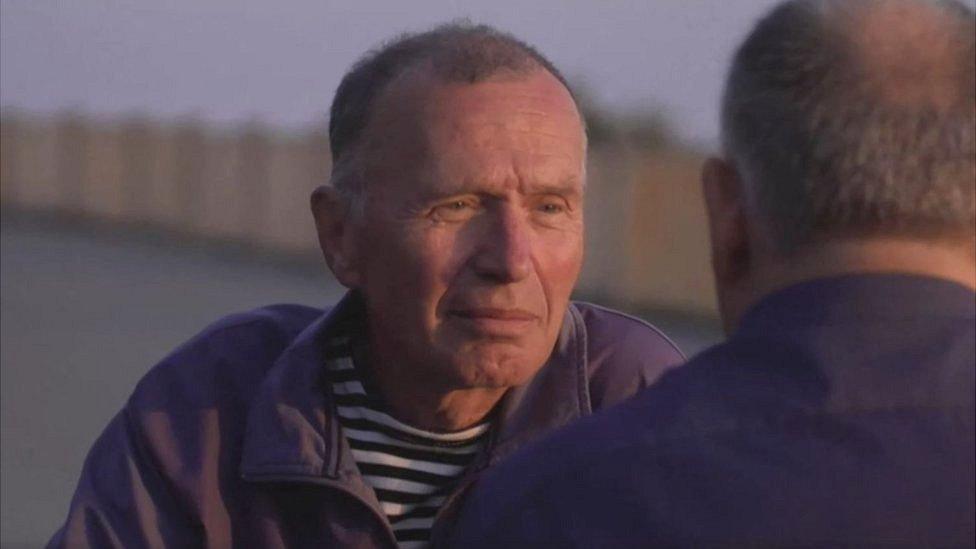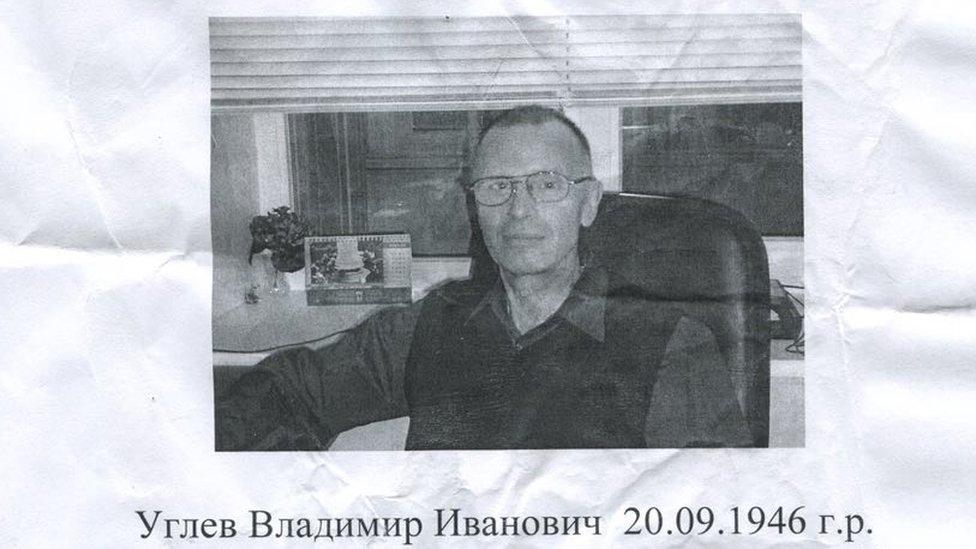Russian leaflets denigrate 'novichok' scientist Vladimir Uglev
- Published

Mr Uglev told the BBC about his research on nerve agents
A Russian scientist who worked on nerve agents like novichok says leaflets have appeared in his home town suggesting that he is a paedophile.
Vladimir Uglev denies that claim. He told BBC Russian that he removed leaflets from his office wall and a local shop. He lives in Anapa, a southern town by the Black Sea.
He was also questioned by police, he said. He is not facing any charges.
Novichok, a nerve agent, was involved in the Skripal case in last March.
Speaking to the BBC last April, Mr Uglev said he had created the poison used against Russian ex-spy Sergei Skripal and his daughter Yulia in the English city of Salisbury. It has been identified in Russia by the code A-234.
Mr Uglev, who has a family including relatives in the US, used to work at a state laboratory in Shikhany, in Russia's Saratov region.
He showed the BBC's Svetlana Reiter copies of the defamatory, anonymous leaflets targeting him in Anapa. Similar to police "wanted" posters, they show his photo, full name, date of birth and address.

Part of one of the leaflets targeting Mr Uglev in Anapa
The text alleges that "Uncle Vova gets to know children near schools, gives them toys". It claims he messages children on vKontakte - the Russian version of Facebook - and "asks them to send him revealing photos". "You need to recognise this paedophile," the leaflets say.
"I tore down the first poster from the office door, where I work. Then a second from that same building. I did the same with a third one, at our shop - how many more are there?" Mr Uglev said.
Three police officers later came to his home, questioned him and looked for any photos of children on his laptop and tablet, he said.
Anapa police contacted by BBC Russian did not deny checking Mr Uglev's circumstances, but said they were not aware of any official investigation concerning him.
The UK government says two Russian GRU intelligence agents - identified as Anatoliy Chepiga and Alexander Mishkin - carried out the Salisbury attack against Mr Skripal and his daughter.
Mr Skripal, who is now at a secret location, had been helping the UK's MI6 spy service.
The investigative news site Bellingcat says, external it has now identified a third GRU officer linked to the Salisbury attack - Denis Sergeev, who had the cover name Sergey Fedotov.
The Russian government denies the UK's allegations over the attack and denies that novichok was developed by Soviet military scientists.